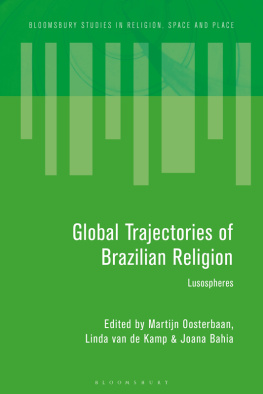
The George and Sakaye Aratani Nikkei in the Americas Series
Series editor Lane Hirabayashi
This series endeavors to capture the best scholarship available illustrating the evolving nature of contemporary Japanese American culture and community. By stretching the boundaries of the field to the limit (whether at a substantive, theoretical, or comparative level) these books aspire to influence future scholarship in this area specifically, and Asian American Studies, more generally.
Barbed Voices: Oral History, Resistance, and the World War II Japanese American Social Disaster, Arthur A. Hansen
Distant Islands: The Japanese American Community in New York City, 18761930s, Daniel H. Inouye
The House on Lemon Street, Mark Howland Rawitsch
Relocating Authority: Japanese Americans Writing to Redress Mass Incarceration, Mira Shimabukuro
Starting from Loomis and Other Stories, Hiroshi Kashiwagi, edited and with an introduction by Tim Yamamura
Taken from the Paradise Isle: The Hoshida Family Story, edited by Heidi Kim and with a foreword by Franklin Odo
Japanese Brazilian Saudades
Diasporic Identities & Cultural Production
Ignacio Lpez-Calvo
U NIVERSITY P RESS OF C OLORADO
Louisville
2019 by University Press of Colorado
Published by University Press of Colorado
245 Century Circle, Suite 202
Louisville, Colorado 80027
All rights reserved

The University Press of Colorado is a proud member of the Association of University Presses.
The University Press of Colorado is a cooperative publishing enterprise supported, in part, by Adams State University, Colorado State University, Fort Lewis College, Metropolitan State University of Denver, University of Colorado, University of Northern Colorado, Utah State University, and Western State Colorado University.
ISBN: 978-1-60732-849-0 (cloth)
ISBN: 978-1-60732-850-6 (ebook)
DOI: https://doi.org/10.5876/9781607328506
Library of Congress Cataloging-in-Publication Data
Names: Lopez-Calvo, Ignacio, author. | Lesser, Jeff, writer of foreword.
Title: Japanese-Brazilian saudades : diasporic identities and cultural production / Ignacio Lopez-Calvo ; foreword by Jeffrey Lesser.
Other titles: George and Sakaye Aratani Nikkei in the Americas series.
Description: Louisville, Colorado : University Press of Colorado, 2019. | Series: George and Sakaye Aratani Nikkei in the Americas series | Includes bibliographical references and index.
Identifiers: LCCN 2019017945 | ISBN 9781607328490 (cloth) | ISBN 9781607328506 (ebook)
Subjects: LCSH: JapaneseBrazilEthnic identity. | Motion picturesBrazilHistory. | Brazilian literature20th centuryJapanese authorsHistory and criticism. | National characteristics, Japanese, in motion pictures. | National characteristics, Japanese, in literature.
Classification: LCC F2659.J3 L85 2019 | DDC 305.8956/081dc23
LC record available at https://lccn.loc.gov/2019017945
This publication was made possible with the support of Naomi, Kathleen, Ken, and Paul Harada, who donated funds in memory of their father, Harold Shigetaka Harada, honoring his quest for justice and civil rights. Additional support for this publication was also provided, in part, by UCLAs Aratani Endowed Chair, as well as Wallace T. Kido, Joel B. Klein, Elizabeth A. Uno, and Rosalind K. Uno.
Some of the information included in this book was previously published in Cultural Celebration, Historical Memory, and Claim to Place in Jlio Miyazawas Yawara! A Travessia Nihondin-Brasil and Uma Rosa para Yumi, in Imagining Asia in the Americas, ed. Zelideth Maria Rivas and Debbie Lee-DiStefano, 15883 (New Brunswick, NJ: Rutgers University Press, 2016).
To the memory of Gonzalo Lpez Martnez, my father, my teacher, my role model.
Contents
Jeffrey Lesser
Ignacio Lpez-Calvos Japanese Brazilian Saudades: Diasporic Identities and Cultural Production is an academic examination of what Chang means when he describes Cubans as a type of Asian. By treating identity (ethnic, national, regional) as situational, Lpez-Calvo makes an important statement of what has been termed the New Latin American Ethnic Studies, a scholarly Japanese Brazilian Saudades reminds us that the essentialist discourses often found among subjects and scholars when discussing identities are neither uniform nor consistent. Indeed, by deconstructing the many ways that Nikkei construct aspects of their identities, Lpez-Calvo reminds readers that being an insider and an outsider are two sides of the same coin, constantly being leveraged against an always changing set of traditional norms.
Japanese Brazilian Saudades is not just an important addition to the New Latin American Ethnic Studies because of its approach to identity; the book helps readers to understand why moments of normative ethnicity (i.e., as practiced or felt by a majority of any particular ethnic group) seem most likely observed among those least engaged with ethnic institutions. As he shows, Japanese Brazilian identity discourses are much more varied than those expressed by, for example, presidents of kenjin-kai, or Nikkei social clubs. By using a wide source base that includes the discursive, the archival, and the visual, Nikkei Brazilians helps to denaturalize ethnicity and to turn identity from essential to negotiated.
Readers will be challenged by a narrative structure that plays with temporality in the same ways that real humans do, something often absent from scholarly works that demand that subjects behave like clocks. Lpez-Calvo, on the other hand, uses the innovative technique of examining contemporary novels and films by the period they cover, rather than the time when they were produced. In doing this, he shows how saudades, a word often translated as yearnings but which speaks to the national identity of many Brazilians, gets re-created outside of traditional chronologies. This allows him to avoid what I consider the most dangerous word in scholarship, or, and its binary categories masking conclusions with false questions. Unlike many scholars who ask their subjects do you feel more Japanese or Brazilian, Lpez-Calvo privileges a different word, and, and thus analyzes complex responses that do not reduce subject lives to simplicities.
Japanese Brazilian Saudades is more than a book about Japan, Brazil, and Nikkei; it is a statement of how scholarly work can best represent the complexities and simplicities of multicultural lives.
Notes
. Hirahara, Summer of the Big Bachi. Other examples of ethnic cops can be found in Limn, Jade Lady Burning and Kaminsky, Liebermans Folly.
. Chang, Death Money, 72.
. Lesser and Rein, Challenging Particularity.
I would like to express my deep gratitude to my friends and colleagues Rudyard Alcocer, Martn Camps, Juan de Castro, Leslie Elizondo, David W. Foster, M. Elizabeth Ginway, Natalia Jacovkis, Eduardo Kobayashi, Vctor Manuel Lpez Pastor, Koichi Mori, Randy Muth, Masato Ninomiya, Teresa Rinaldi, Traci Roberts-Camps, Robert Rudder, Helena K. Sanada, Luciano Tosta, Ken Yoshida, and especially to Jos I. Surez for all their support for this project. I am also indebted to Denice Sawatzky and the other librarians at the University of California, Merced, who helped me find many of the texts I needed. I also want to express my appreciation to the Japan Studies Associations Freeman Foundation, for the grant I received to study at the Summer Institute on Japan, in Honolulu, Hawaii, during the summer of 2014, and to the University Press of Colorados anonymous reviewers, for their excellent feedback. I appreciate the kindness of Srgio Kiyoshi Fukuhara and the Museu Histrico da Imigrao Japonesa no Brasil, who allowed me to include photographs from their collection in this book. I am also grateful to my wife, Tonya, and my daughter, Sofa, for all their love and support. Above all, I thank my beloved, late father, Gonzalo Lpez Martnez, who was always my inspiration and the best role model a son could ever have.












 The University Press of Colorado is a proud member of the Association of University Presses.
The University Press of Colorado is a proud member of the Association of University Presses.